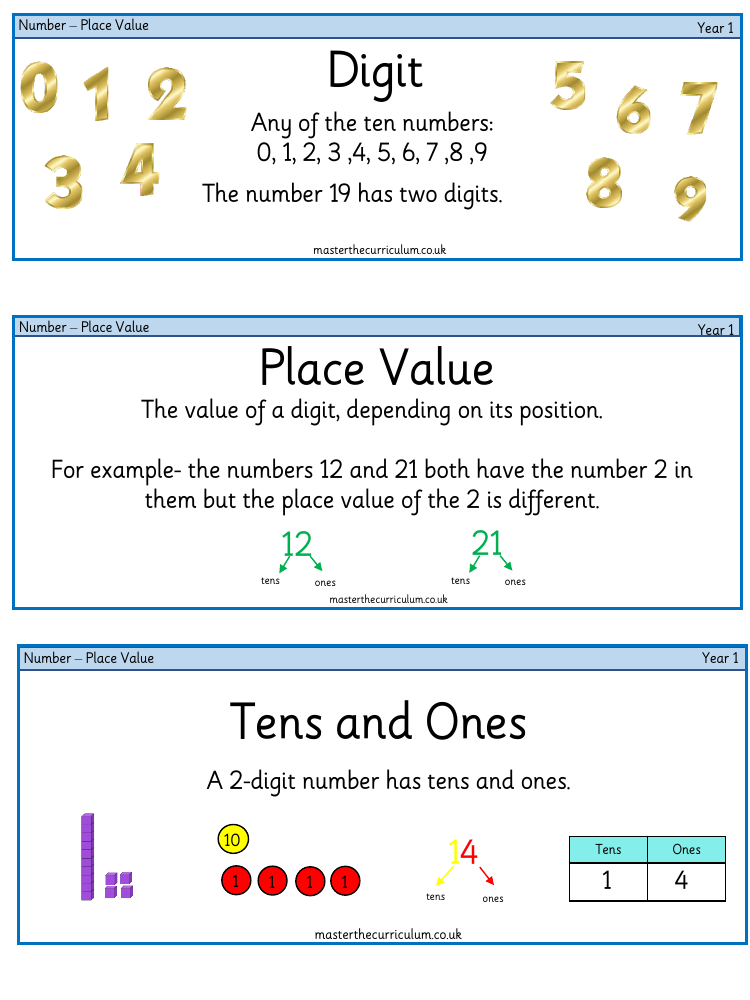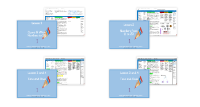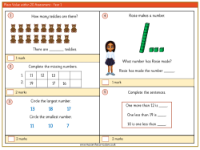Place Value within 20 - Vocabulary

Maths Resource Description
The foundational concept of place value within the range of 20 is crucial for Year 1 students to grasp the essence of numbers and their worth. A digit is any of the ten symbols from 0 to 9 that we use to create numbers. Place value, on the other hand, refers to the value a digit holds based on its position within a number. For example, in the numbers 12 and 21, the digit '2' has different values because of its position. The term 'tens and ones' is used to describe the two parts of a two-digit number, where 'tens' indicates the number of tens and 'ones' signifies the single units.
Visual aids such as ten frames assist in demonstrating numbers as composed of tens and additional units, while part-whole models help in breaking down numbers into their constituent parts. Base 10 equipment is another educational tool used to partition numbers into tens and ones for a better understanding of place value. Additionally, comparison symbols like 'greater than', 'less than', and 'equal to' are employed to compare numbers, while the concepts of 'before', 'after', 'forward', and 'backward' help with understanding the sequence of numbers. The mastery of these concepts is assessed through the Place Value Vocabulary Assessment in Year 1.


